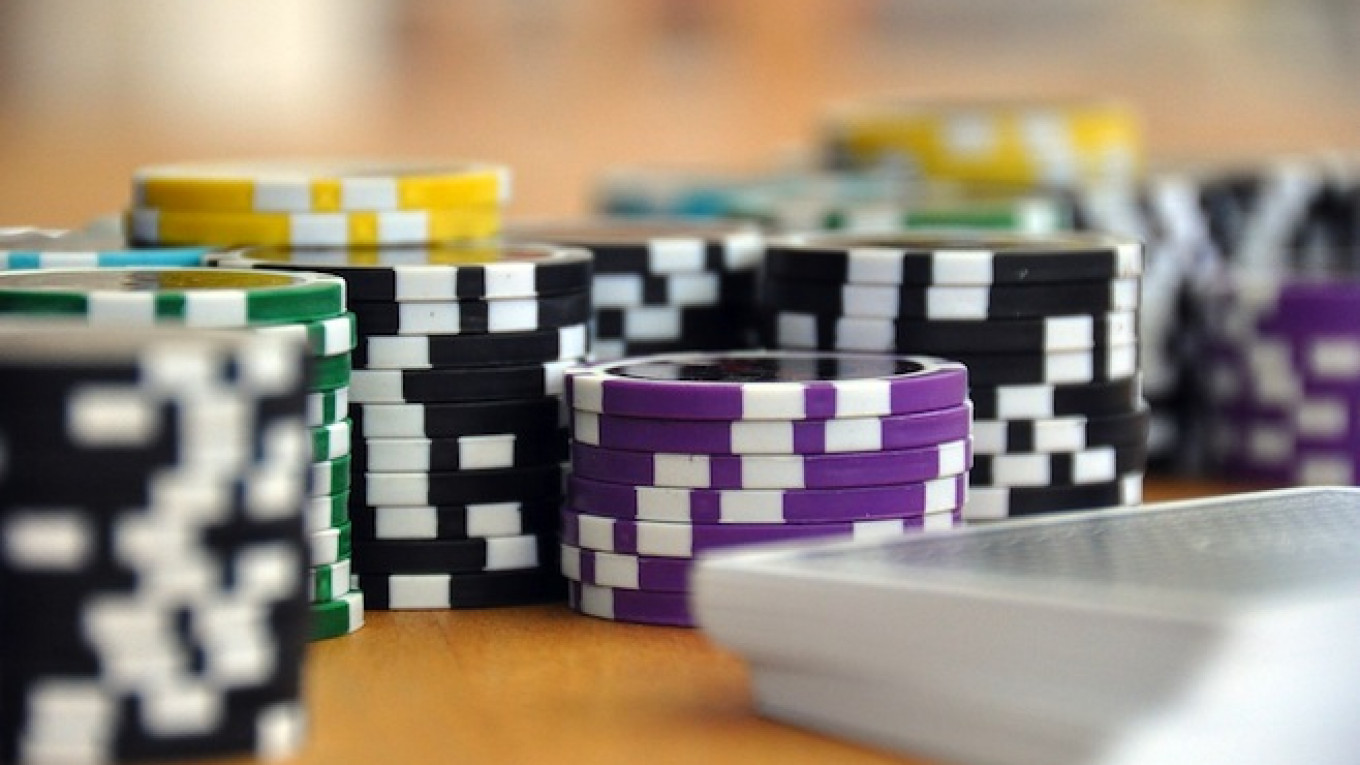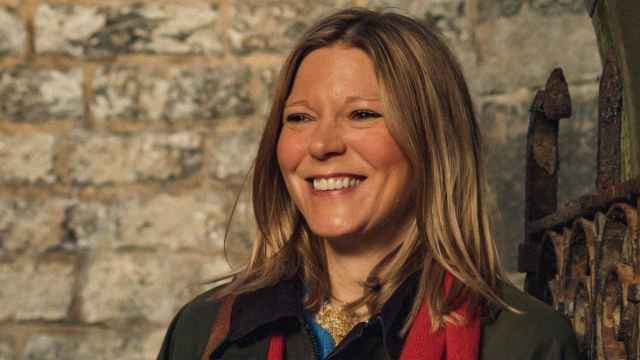When Jimmy showed up at my door in the northern Moscow region of Otradnoye wearing dirty black Vans and with just $400 dollars to his name, I had every reason to doubt that he was a professional poker player. But he was, and is.
When we first met, it was February 2013 and Jimmy was on the wagon. The 29 year-old-Londoner had come to Moscow to teach English, looking for a fresh start in life and to get away from poker.
His love affair with both Russia and poker had always been complicated — he received a master’s degree in economics and Russian years ago, but somehow never connected the two until about just before we met.
He arrived Moscow from Costa Rica where he had spend five years working on a communal farm and playing poker. Although practically in the jungle, Jimmy clung to civilization through a primitive internet connection and used the time to perfect his gambling skills. He did it playing his favorite game — Omaha Hi-Lo pot limit, a game in which he made over $500,000.
We were now roommates in a run-down place in the north of Moscow sleeping on couchbeds beneath walls covered in musty carpets. The building was on Severny Bulvar — a street in the middle of nowhere that was always busy. There was a homeless dog that slept in the stairwell living off bowls of water and sausages our neighbors left.
One morning as we sat at the kitchen table looking over grammar books as I helped Jet plan his first English lesson, curiosity finally got the better of me.
“What did you do with all that money?,” I asked.
Jimmy batted the question away with his hand.
“I lost some, spent some. A lot of people think that all pros win a tournament for a hundred grand, and then that's in the bank. But I made it in smaller games hustling the 'fish,' — mostly Americans before they banned it,” Jimmy said, using the slang term for bad players who are easy marks for professionals.
But Jimmy swore he was done with poker for good; he said it had messed him up.
“It’s like a drug; like any other addiction.”
Now in Moscow, he worked as an English teacher. The school we worked for rented the apartment and paid Jimmy the kind of monthly salary he used to win in a single game — about $800 a month. It didn't seem to bother him; he wore his Vans until his students and the school administrators complained.
But not having money and living in a poor neighborhood among Russians who didn’t have any either was like rehab for Jimmy. He was addicted to money.
That said, it still liked him; it followed him around.
In March, we were kicked out of the flat in Otradnoye. The landlady was sick of all the foreigners complaining about the dog.
A wealthy French woman invited Jimmy to live with her in a luxury apartment in the city center on Chistye Prudy Bulvar. It rented for $5,000 a month, but the woman let Jimmy stay rent-free. The only catch was he had to look after her three old cats while she was away on business.
It was a cool place and I visited Jimmy there often. There were always parties when the French woman was in town, and we both met lots of expats. They had big jobs at multinational companies or were involved with the Sochi Olympics, and got paid in dollars. Although we were still both broke, we got on with them. Our new friends were all in Moscow for the money and didn’t understand why we would live here without that carrot, but they didn’t seem to judge us.
Apart from the cats, Jimmy liked living in that nice place; I think it killed his urge to play for a while. It was summer before he finally fell off the wagon.
On a hot day in July, Jimmy sent me a text. Sandwiched between banter, he asked if he could play on my Pokerstars account. “Dude, I need some new shoes and a couple of shirts for the summer,” he explained. “I'm just going to play a little bit.”
He disappeared for two whole weeks. The only news I got was hundreds of emails from Pokerstars with the results of his Omaha Hi-Lo tournaments. He was winning.
Honestly, I think I wanted him to lose. I was insulted by his ability to turn $10 into several thousand.
When he finally emerged, we met up at Starlite Diner, a cheesy American restaurant where cute Russian girls serve milkshakes in 1950's-era skirts. Jimmy showed up in impeccable white shoes and a paisley silk shirt.
“You're ridiculous,” I said.
Jimmy roared: “The dream came true!”
The waitress brought us burgers and a bucket of ice-cold beers. Jet told me about his plans.
“I booked a package-holiday to Egypt in a month. Why don't you come along? Get out of the city.”
I agreed.
A month later we were getting drunk on whiskey on a rocky beach in Sharm-El Sheik. We were the only English-speakers there. The music blaring from the hotel speakers was looped and for two weeks this mantra penetrated our brains:
“Anytime, Anyway
Let's all go to
Sharm-El Sheik.”
In the evening when it was cool, we sat on the patio under palm trees smoking hookah for $3.
Under that ether, Jimmy concocted a new plan one night.
“Dude, we have to open a school in Moscow. Set it up, get it running and then we can make money while traveling the world.”
It was a delicious idea.
Our Egyptian vacation gave birth to Dream English Moscow.
When we got back to Russia, we bought a web domain and designed a clownish site featuring pictures of ourselves flexing in tight muscle shirts. We marketed the school towards single Russian women with the promise of “making their dreams come true.” Of course, it wasn’t going to work.
After his July poker binge, Jimmy didn't mention the game for a while. I wondered if he even thought about it. Poker was an addiction; but it was the only thing he could do well.
Less than a year later, Dream English Moscow had flopped — our strategy to market it on the dating app Tinder hadn't worked as we had planned. Jimmy had blown through his poker money, and the French woman kicked him out after one of her cats died.
Jimmy rented a concrete box at the end of a metro line for 35,000 rubles a month. It didn't have any furniture except a bizarre cow-skin carpet where he slept on the floor. He scraped by giving English lessons in coffeehouses for 2,000 rubles an hour. Unable to afford a gym membership, he exercised at home with a 10-gallon bucket of water and a broom handle.
Around the beginning of May, Jimmy confessed he was going to play again.
He rationalized the move saying that the timing couldn’t be better — the Ukraine crisis and sanctions enacted by the West against Russia had boosted the dollar, and the games were for dollars. Jimmy wasn’t the only guy in Russia doing it. A huge percentage of online gamblers now were logging in from Russia, Ukraine and Belarus.
“I'm gonna try to make enough to start a new school,’ he said. ‘Otherwise, what am I doing here?”
It was a good question — one that I myself had been avoiding for some years.
Jimmy disappeared again, but this time he disabled the notifications from Pokerstars. I had no idea if he was winning or losing. I pictured him sitting on the floor of his box behind a cracked Ipad screen. The guy was a true dreamer.
Three weeks passed before Jimmy contacted me. We agreed to meet at Starlite.
When he came out of the metro station, I could tell instantly that he had lost. He had his hands in his pockets and wore a vague smile.
“Well, that was a waste of time,” he said. “I’m definitely done with it now.”
It was something he had told himself many times before.
“Well what are you going to do now?,” I asked.
He sort of laughed.
“No idea.”
Two years in Moscow had left Jimmy unchanged in every way.
A Message from The Moscow Times:
Dear readers,
We are facing unprecedented challenges. Russia's Prosecutor General's Office has designated The Moscow Times as an "undesirable" organization, criminalizing our work and putting our staff at risk of prosecution. This follows our earlier unjust labeling as a "foreign agent."
These actions are direct attempts to silence independent journalism in Russia. The authorities claim our work "discredits the decisions of the Russian leadership." We see things differently: we strive to provide accurate, unbiased reporting on Russia.
We, the journalists of The Moscow Times, refuse to be silenced. But to continue our work, we need your help.
Your support, no matter how small, makes a world of difference. If you can, please support us monthly starting from just $2. It's quick to set up, and every contribution makes a significant impact.
By supporting The Moscow Times, you're defending open, independent journalism in the face of repression. Thank you for standing with us.
Remind me later.






